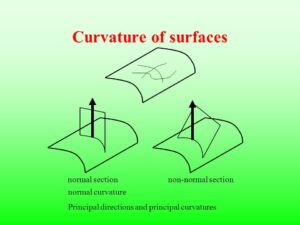The Advantages of Pursuing a B.Sc. in Nutrition & Dietetics – Geeta University
Uncategorized Best Career Options in geeta university, best college, best diploma university in haryana, Best engineering College in Haryana, best Law college in Haryana, best mba college in haryana, best MCA college in haryana, Best University for BCA in Haryana, Best University in Haryana, Geeta University, Uncategorized
The Advantages of Pursuing a B.Sc. in Nutrition & Dietetics – Geeta University
The B.Sc. in Nutrition & Dietetics is an undergraduate program that deals with the study of food, nutrition, and its effect on human health. This program is designed to provide students with the necessary skills and knowledge to become experts in the field of nutrition and dietetics. In this blog, we will explore the career prospects and benefits of pursuing a B.Sc. in Nutrition & Dietetics.
Introduction to B.Sc. in Nutrition & Dietetics :
The B.Sc. in Nutrition & Dietetics is a three-year undergraduate program that focuses on the study of food and its effect on human health. The program provides students with the knowledge and skills to understand the science of nutrition and dietetics and its application in real-life scenarios. The curriculum includes subjects such as biochemistry, anatomy, physiology, and clinical nutrition.
Career Prospects in Nutrition & Dietetics :
There are a variety of career paths that one can pursue after completing a B.Sc. in Nutrition & Dietetics. Some of the popular career paths in this field include:
Clinical Dietician: Clinical dieticians work in healthcare facilities, providing advice to patients with dietary needs and medical conditions such as diabetes, hypertension, and obesity.
Public Health Nutritionist: Public health nutritionists work in community health organizations, designing and implementing nutrition programs to promote healthy eating habits among the population.
Sports Nutritionist: Sports nutritionists work with athletes, designing and implementing diet plans to optimize their performance and recovery.
Food Service Manager: Food service managers oversee the operations of a food service establishment, such as a restaurant or cafeteria, ensuring that food is prepared and served safely and in compliance with nutritional standards.
Benefits of Pursuing B.Sc. in Nutrition & Dietetics :
There are many benefits to pursuing a B.Sc. in Nutrition & Dietetics, including:
Personal Health: Studying nutrition and dietetics can improve one’s personal health by providing an understanding of how food affects the body and what dietary changes can be made to improve health.
Career Opportunities: There is a growing demand for nutrition and dietetics professionals in healthcare, food service, and public health sectors, providing a wide range of career opportunities.
Helping People: Nutrition and dietetics professionals have the opportunity to make a positive impact on people’s lives by helping them make healthier food choices.
Research Opportunities: Pursuing a B.Sc. in Nutrition & Dietetics can lead to research opportunities in the field of nutrition and dietetics, contributing to the advancement of knowledge in the field.
Challenges of Pursuing B.Sc. in Nutrition & Dietetics :
While pursuing a B.Sc. in Nutrition & Dietetics has many benefits, it also poses some challenges, including:
Science-Heavy Curriculum: The curriculum for the B.Sc. in Nutrition & Dietetics is science-heavy, requiring a strong foundation in biology, chemistry, and biochemistry.
Long Hours: Nutrition and dietetics professionals may need to work long hours, including weekends and holidays, to provide continuous care to patients.
Continuing Education: Nutrition and dietetics professionals need to keep up with the latest research and advancements in the field, requiring ongoing education and training.
Limited Job Opportunities: The job opportunities for nutrition and dietetics professionals may be limited in some geographic areas, requiring relocation or a change in career path.
Conclusion :
Pursuing a B.Sc. in Nutrition & Dietetics can lead to many career opportunities in the field of nutrition and dietetics. The benefits of pursuing this program include personal health, career opportunities, helping people, and research opportunities. However, pursuing this program also poses some challenges, including a science-heavy curriculum, long hours, continuing education, and limited job opportunities.
- By Garvita Aggarwal
Related Posts

Unleashing Your Potential: Leadership Development for Success – Geeta University
Unleashing Your Potential: Leadership Development for Success – Geeta University Leadership is a crucial skill set that goes beyond titles and positions. In college, developing leadership skills can unlock opportunities, foster personal growth, and set the stage for future success.

Understanding the Basics of Machine Learning: Types, Applications, and Challenges – Geeta University
Understanding the Basics of Machine Learning: Types, Applications, and Challenges – Geeta University Machine learning has rapidly become one of the most important fields in technology. It is a subset of artificial intelligence that enables machines to learn and improve

Beyond Flatland: Exploring Curvature in Manifold Spaces
Introduction: Welcometo the fascinating realm beyond flatland, where the world of mathematics transcends the confines of Euclidean geometry. In this exploration, we embark on a journey into the intricate and captivating domain of manifold spaces, delving deep into the concept



